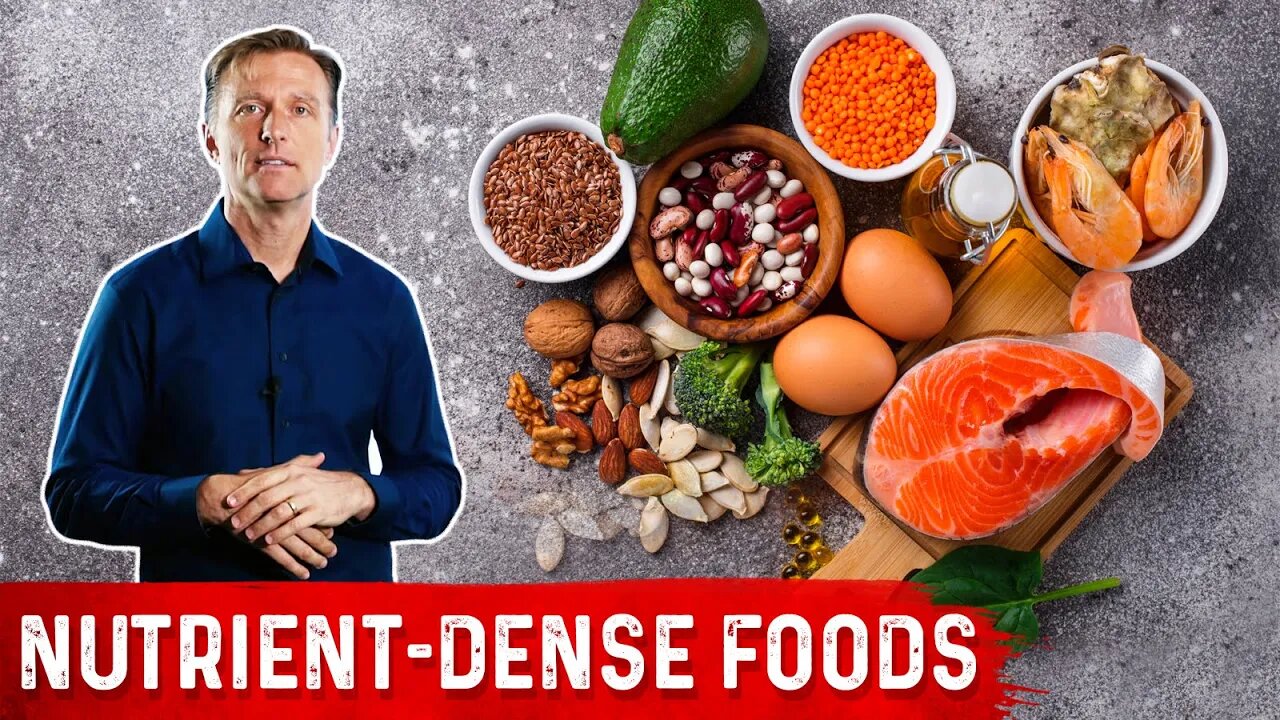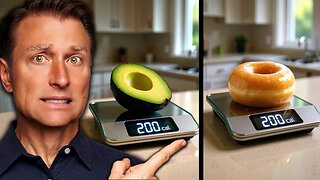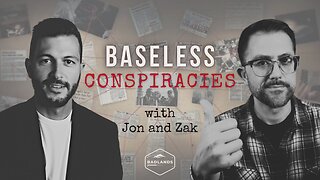Premium Only Content

The 7 Nutrient-Dense Foods for Keto
Learn more about the nutrients you desperately need, as well as these important nutrient-dense foods!
Timestamps
0:00 Nutrients on keto
3:00 Trace minerals
3:33 Iron
4:50 Antioxidants and phytonutrients
5:25 A few of the most nutrient-dense foods
Today I want to cover the top nutrient-dense foods on keto. Certain nutrients are very easy to get, but some are very difficult. Out of all of the nutrients, the one that might be hardest to get is vitamin D. It’s actually next to impossible to get the vitamin D you need from food alone. On the flip side, vitamin K1 is probably one of the vitamins that’s easiest to get. Vitamin B6 is also pretty easy to get.
It can be difficult to get the amount of potassium you need unless you consume a lot of vegetables (at least 7 cups per day). However, you can also get some potassium from meats. Magnesium is another one that many people are deficient in, but if you’re consuming enough vegetables, you’re going to get magnesium.
When getting vitamin A, you need to make sure you’re getting plenty of the active form (retinol) and not just pre-vitamin A. Pre-vitamin A is found in vegetable sources like spinach and kale. A few great sources of the active form of vitamin A are organ meats and egg yolks. Omega-3 fatty acids can also be difficult to get unless you’re consuming foods such as fatty fish, organ meats, or grass-fed animal products.
Many people are deficient in trace minerals. Unless you consume foods like sea kelp or shellfish, you may not get enough trace minerals. However, there are a good amount of trace minerals in organ meats.
The most bioavailable iron is from animal products. Animal products are also a good source of vitamin B12. Vegetables and berries are good sources of vitamin C.
A few great sources of antioxidants and phytonutrients are garlic, many spices and herbs, and classes of vegetables like cruciferous.
7 nutrient-dense foods:
1. Organ meats
2. Shellfish
3. Salmon
4. Cruciferous vegetables
5. Salad (at least 7 cups)
6. Grass-fed meat
7. Eggs
Dr. Eric Berg DC Bio:
Dr. Berg, age 58, is a chiropractor who specializes in Healthy Ketosis & Intermittent Fasting. He is the author of the best-selling book The Healthy Keto Plan, and is the Director of Dr. Berg Nutritionals. He no longer practices, but focuses on health education through social media.
DR. BERG'S SHOP: https://bit.ly/3ktt3ct
Follow us on FACEBOOK: fb.me/DrEricBerg
Send a Message to his team: m.me/DrEricBerg
ABOUT DR. BERG: https://bit.ly/2H0392j
Disclaimer:
Dr. Eric Berg received his Doctor of Chiropractic degree from Palmer College of Chiropractic in 1988. His use of “doctor” or “Dr.” in relation to himself solely refers to that degree. Dr. Berg is a licensed chiropractor in Virginia, California, and Louisiana, but he no longer practices chiropractic in any state and does not see patients so he can focus on educating people as a full time activity, yet he maintains an active license. This video is for general informational purposes only. It should not be used to self-diagnose and it is not a substitute for a medical exam, cure, treatment, diagnosis, and prescription or recommendation. It does not create a doctor-patient relationship between Dr. Berg and you. You should not make any change in your health regimen or diet before first consulting a physician and obtaining a medical exam, diagnosis, and recommendation. Always seek the advice of a physician or other qualified health provider with any questions you may have regarding a medical condition.
#keto #ketodiet #weightloss #ketolifestyle
Thanks for watching! You may want to include these 7 nutrient-dense foods in your diet.
-
 6:00
6:00
Dr. Eric Berg
4 days agoThe Biggest Weight Loss LIE in History
4.33K5 -
 14:47
14:47
GritsGG
1 day agoRumble Tournament Dubular! Rebirth Island Custom Tournament!
66.3K5 -
 1:36:05
1:36:05
Side Scrollers Podcast
18 hours agoStreamer ATTACKS Men Then Cries Victim + Pronoun Rant Anniversary + More | Side Scrollers
75K3 -
 LIVE
LIVE
Lofi Girl
2 years agoSynthwave Radio 🌌 - beats to chill/game to
183 watching -
 42:55
42:55
Stephen Gardner
1 day ago🔥Trump’s SURPRISE Move STUNS Everyone - Democrats PANIC!
95.4K116 -
 1:37:19
1:37:19
Badlands Media
15 hours agoBaseless Conspiracies Ep. 148: The Delphi Murders – Secrets, Setups, and Cover-Ups
42K17 -
 5:59:05
5:59:05
SpartakusLIVE
9 hours ago#1 MACHINE Never Stops The GRIND || LAST Stream UNTIL Friday
147K2 -
 28:36
28:36
Afshin Rattansi's Going Underground
1 day agoDoug Bandow: ENORMOUS DAMAGE Done to US’ Reputation Over Gaza, Trump ‘Easily Manipulated’ by Israel
28.8K29 -
 2:45:13
2:45:13
Barry Cunningham
16 hours agoCBS CAUGHT AGAIN! CHICAGO A MESS! LISA COOK IS COOKED AND MORE LABOR DAY NEWS!
114K51 -
 6:39:17
6:39:17
StevieTLIVE
10 hours agoMASSIVE Warzone Wins on Labor Day w/ Spartakus
34.1K1